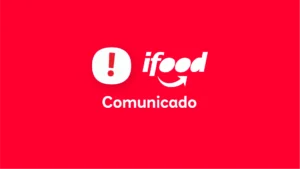Junior Borneli, CEO of StartSe, explains why monitoring changes in behavior is essential for business success
Profit is no longer the exclusive metric of a business’s success. In the new economy, all power is given to the consumer. In the strategy known as Consumer Centric, the customer is the focus of all business decisions. “Companies in the new economy place consumers in a position of power”, says Junior Borneli, founder and CEO of the StartSe platform, Linkedin Top Voice and author of the bestseller “Organizações Infinitas”.
In this interview with iFood News, he also talks about the importance of following the behavioral changes we are going through to understand how to stay relevant to the public. “In the case of Globo, for example: what would be the point of creating incredible soap operas if the viewer is consuming short series?”, proposes Junior.
Check out, below, what he considers to be changing in relations between companies and consumers.
iFN: Are companies in the new economy necessarily technological?
J.B.: They don't need to be technology companies, but have a technological base. Technology is not the end, but the means. Marcos Leta, from Fazenda Futuro, was talking to me the other day and said exactly that: that they were a foodtech, but that it has to be more food than tech. If the food isn't good, the business doesn't make sense. So you have to be efficient in what you do and use technology to scale the business.
iFN: What differentiates these companies?
J.B.: The ability to reinvent yourself all the time is one of your main characteristics. It doesn't need to be a new company, but it needs to remain relevant in the business model in which it operates. TV Globo, for example, followed the transformations in the sector, with the arrival of pay TV and streaming, and remained relevant regardless of the form.
iFN: What do you mean by “regardless of form”?
J.B.: It means worrying about generating value for the customer, more than how you will do it. Detachment from form helps you evolve. In the case of Globo, for example: what would be the point of creating incredible soap operas if the viewer is consuming short series? It adapted, changed the way it did things and generated value for the customer.
iFN: How do companies in the new economy behave?
J.B.: Companies in the new economy place the consumer in a position of power, choice, and conscious decision-making. For example, Airbnb. Before, anyone who wanted to rent a house on the beach used the Yellow Pages, the newspaper's classifieds. They transformed this service into a much more dynamic process, with images, references, reviews — tools that help the consumer. In this way, they placed the consumer in a position of power, of choice, of conscious decision making. In other words: they empowered the customer and reinvented the way of doing business.
iFN: Are there any trends that have emerged with the pandemic?
J.B.: The purpose — not exactly as a trend, but as a point to which we should pay even more attention. New economy companies are true to their purpose. They need to “live” their speech. During the pandemic, people looked to companies for values that were aligned with theirs: the consumer is increasingly connected to this.


